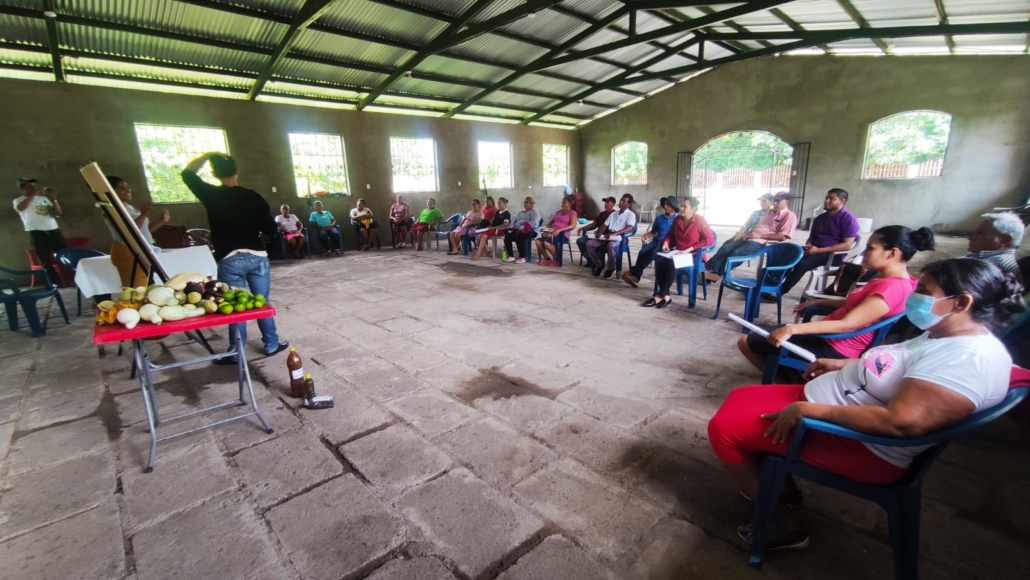Why Workshops?
Here at CEPAD, we use the words workshops and training a lot, but we want to share our methodology for using the workshops and why they’re important.
Workshop Routine: All of our workshop time is mapped out in the same way for all of our programs.
- Biblical Reflection. As a wholistic ministry, it is important that we pause to center ourselves before learning, constantly redirecting our focus to the Lord.
- Introduction and Updates. During the first workshops, we introduce ourselves to one another and what the topics will be for that day. If the programs are already in process, we share updates on how things are going – challenges, successes, questions, etc.
- Objectives and Learning. We share the goals for the training and get down to the information we need to cover. This looks like our local staff or guest speakers teaching new information and skills to community members.
- Activity. This may be small-group work or getting our hands dirty on the farms as we put into practice what we have learned.
- Summary. We wrap up our time together by reviewing the main information and answering any questions.
- Experiences and Evaluation. The participants share about how they learned and also evaluate the workshop so that our local staff can improve as each person’s learning style may be different.
Why the Workshops are Important.
- The trainings focus on empowering local skills and abilities, leading to self-sustainable communities over time.
- Workshops create relationship; not just between communities and our local staff but also within the community, between one another. This forms a more cohesive and unified village, setting them up for success in the long run. It also allows our local staff to build trusting relationships as CEPAD’s goal is to provide accompaniment to everyone in CEPAD’s programs.
Each program gets three workshops per year, allowing the community members to practice what they are learning before moving on to the next steps. If you would like to learn more about each of the programs, you can visit their sites.



